Lapdog lovers unite: Today, we’re taking a look at the best small dog breeds! These mini dogs are ready to make mischief, steal snuggles, beg for kibbles, and just generally brighten your life with their adorable antics.
View in gallery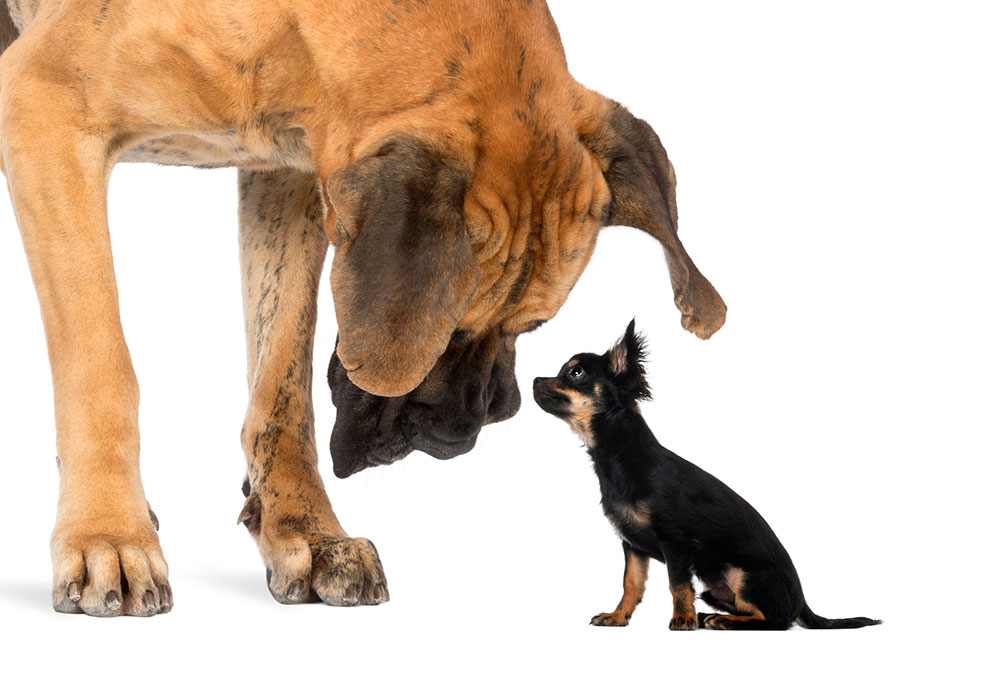
It’s technically impossible to say that one breed of dog is definitively superior to another. Every purebred has been genetically altered through selective breeding to fit a particular ideal or niche. If you live in an apartment, for example, you may appreciate a more compact pooch compared to the space and energy requirements of the world’s largest dog breeds.
What we’re considering here is which small dog breeds make the best companions; which are good for families; and which breeds are going to have the fewest health issues. Read on!
Related Reading: What Is the Smallest Dog in the World?
Top 13 Cute Small Dog Breeds that Make Awesome Pets
You might think you’re not a small dog person, but these cute small dogs have the best chance to change your mind. Already a convert? Well, get ready to go on a walk through the virtual dog park with us as we explore the 13 best small dog breeds!
1. Mixed/Mutts
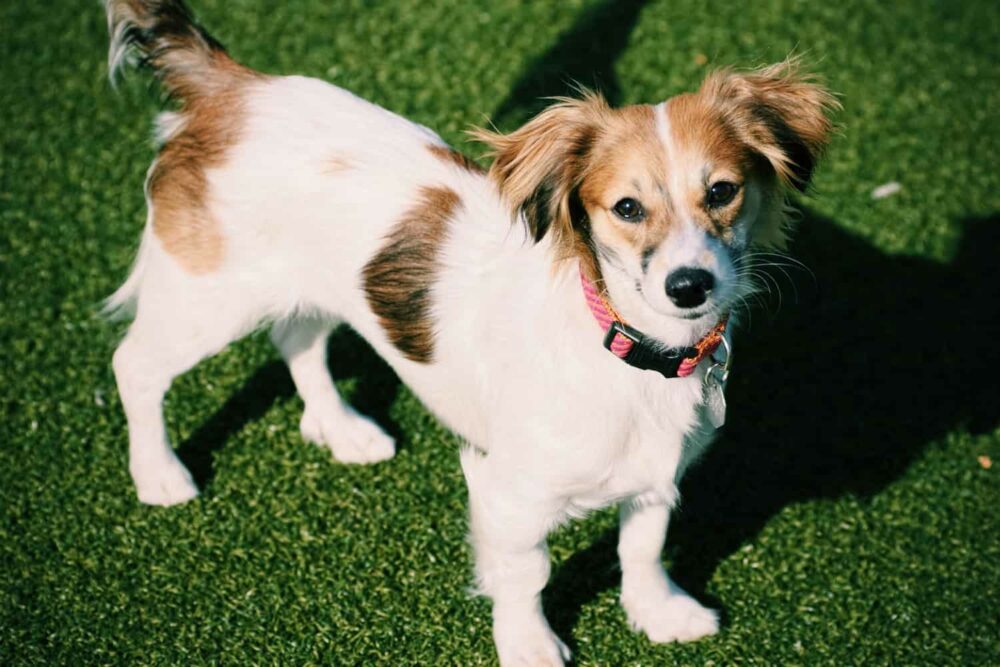
The first rule of genetics is to spread genes out as far as possible. Diversity leads to strength in the world of DNA, so picking up a small dog with an unknown origin story is often better than anything with an “untainted” bloodline. The issue here is how many unknowns exist in a mishmash pup. You’ll need to learn about many breeds to identify what kind of crossover you’re getting, and even then you can’t be sure whether it’s going to be more Type A, B, or None of the Above.
Still, some of the best dog breeds aren’t breeds at all, but happy accidents. We have loved many a mutt in our day–and the feeling you get rescuing a forever friend from a shelter is rewarding both in the short term and long. Big or small, mixed breeds are a great choice for dog lovers.
2. Chihuahua
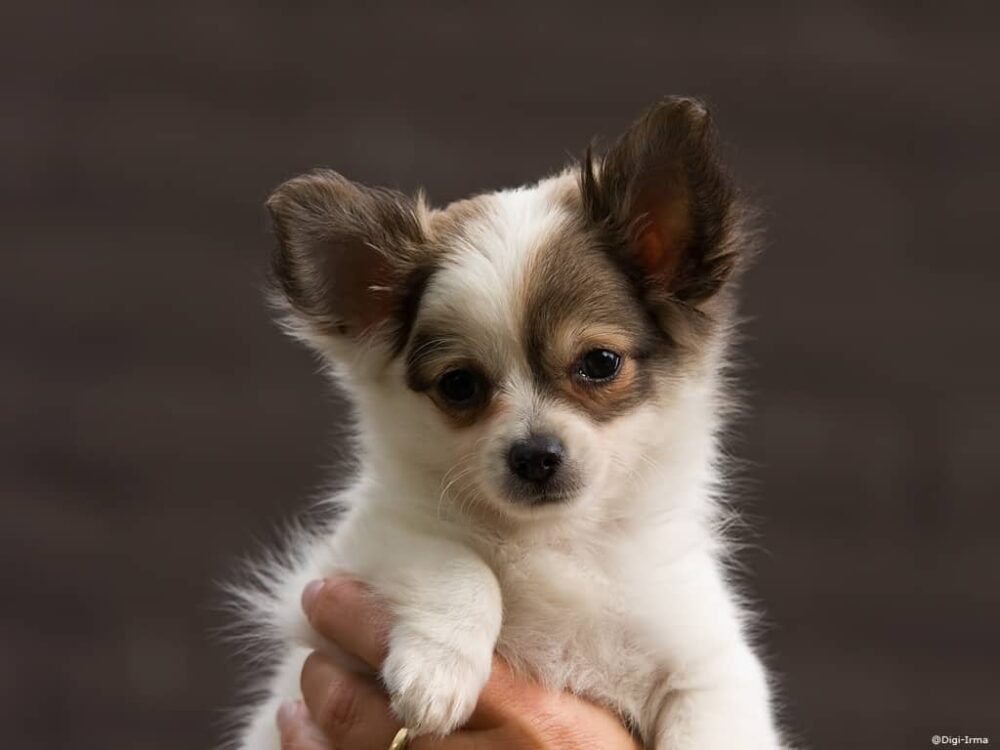
The smallest of toy dog breeds, the chihuahua has both its critics and fierce defenders. And you know what? They’re both right. Yes, they tend to bark belligerently at strangers; no, they aren’t particularly easy to housebreak. They’re small, physically fragile, and often more than a little neurotic.
But chi chi owners will tell you there isn’t a more loyal, sweet natured animal on earth–once they get to know you. Those big brains aren’t just for show; they’re incredibly intelligent, alert, communicative, and absolutely hilarious. And the long-haired variety have the most unbelievably silky fur of any dog breed. Chis aren’t prone to disease, and are among the longest-lived dog breeds–allowing you to enjoy their eccentricities sometimes for multiple decades. And that tendency to bark makes them exceptionally good watchdogs.
Truly, big things come in small packages, and the chihuahua is larger than life to all whom it endears.
3. Pomeranian
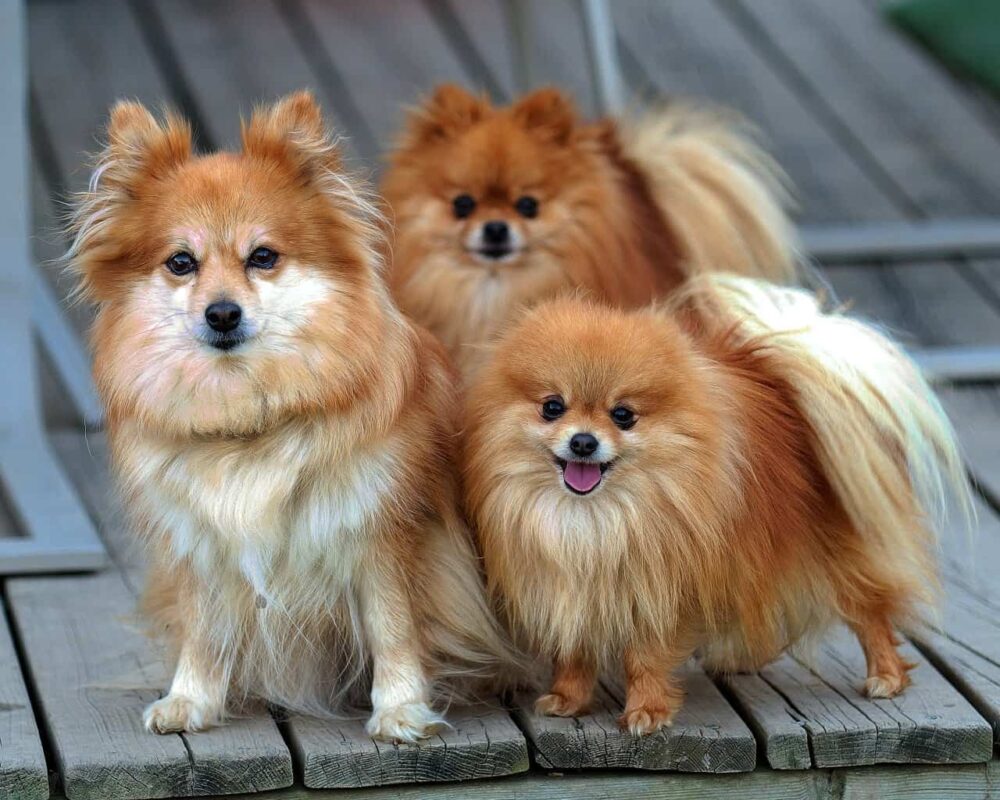
The ever-popular Pomeranians do require a little more grooming than small dog breeds, and tend to shed like fiends. Outside of that, these small fluffy dogs have very few issues in either body or temperament.
They’re friendly and companionable, but also ready to rumble should someone step to them. Beyond a little extra aggression, they rarely bear the neurotic sensibilities that come with many small breeds. They’re good with kids, so long as they’re introduced as a puppy. Otherwise, they can be impatient and churlish (but can you really blame them?)
4. Yorkshire Terrier
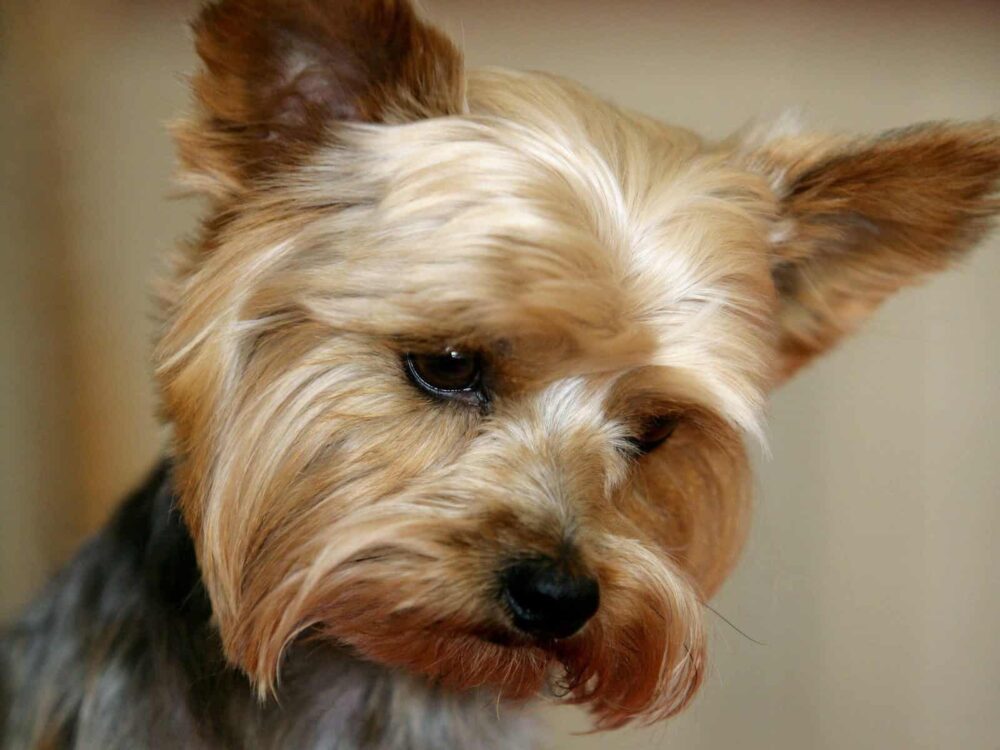
Train them early to stop the incessant yapping and yorkies are fun and frolicsome, but don’t need a lot of room to run. Indeed, their diminutive size, low maintenance, and velcro-like attachment to their owners make them some of the best small dog breeds for apartments.
Typically timid and gentle, with a love of light play, the elderly and infirm often find the deep bond that these dogs form to be a lifeline. They’ll grieve for a lost friend like few animals in the world, and are brilliantly intuitive.
5. Maltese
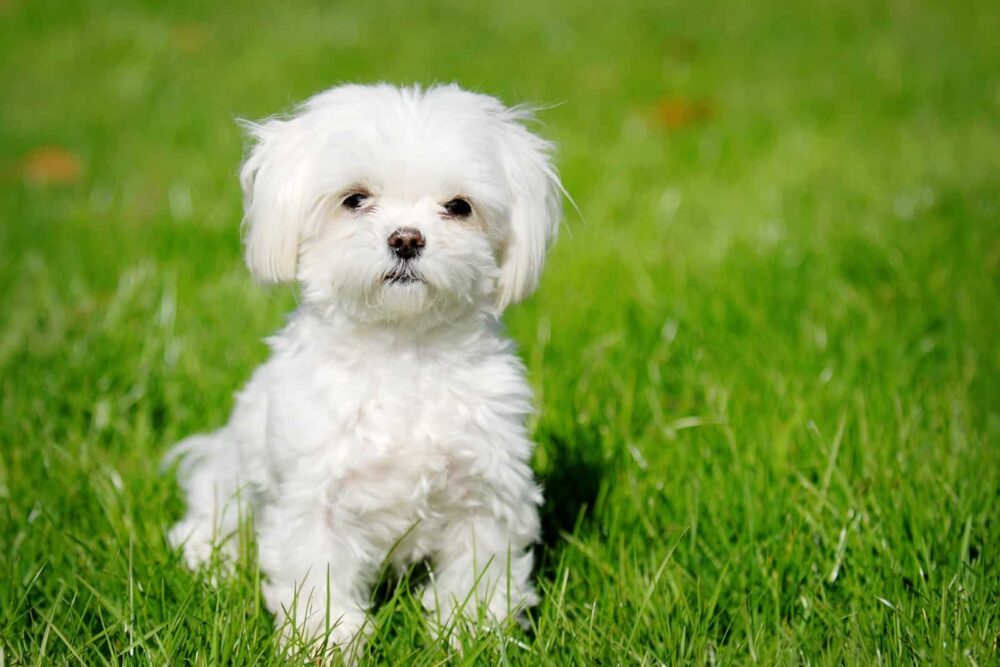
If you want some of the glorious hair of a pomeranian without the shedding, a maltese is a marvelous option. Along with the Bichon Frisé, there is perhaps no more iconic small white dog.
Bred to be companion pets, they do not like to be left alone, but are otherwise sweet as raw brown sugar. They’re among the best small dogs for kids and with people in general. They’re also great with other dogs, and even with cats! In short, it’s hard to go awry with a Maltese.
6. Toy Poodle
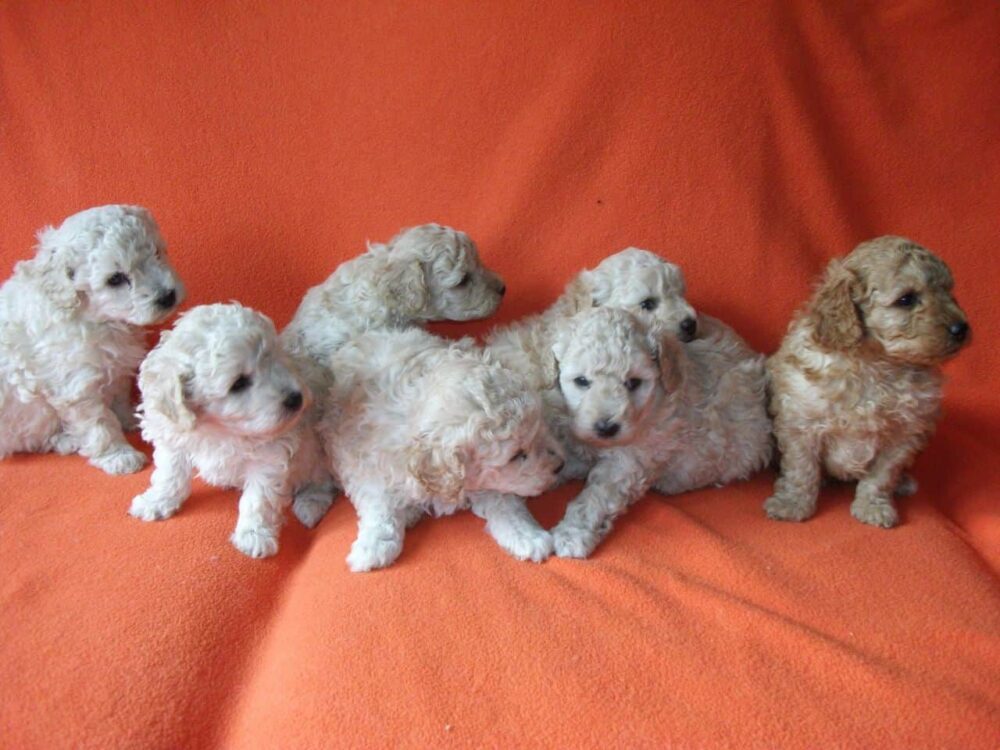
There’s very few bad poodles. The most hypoallergenic of any dog, since they have hair, not fur and thus don’t shed. The mini/toy/teacup poodles are dogs that stay small–unlike their standard poodle counterparts which grow into quite a lot of pooch!
They bond strongly with their family, eschewing strangers, and adore attention. That means they should not be left alone. Poodles are athletic, so they also should have room to run and play, though mileage varies depending on size and personality. Be careful though, because they are wickedly smart and can end up training you, rather than the other way around!
7. Shih Tzu
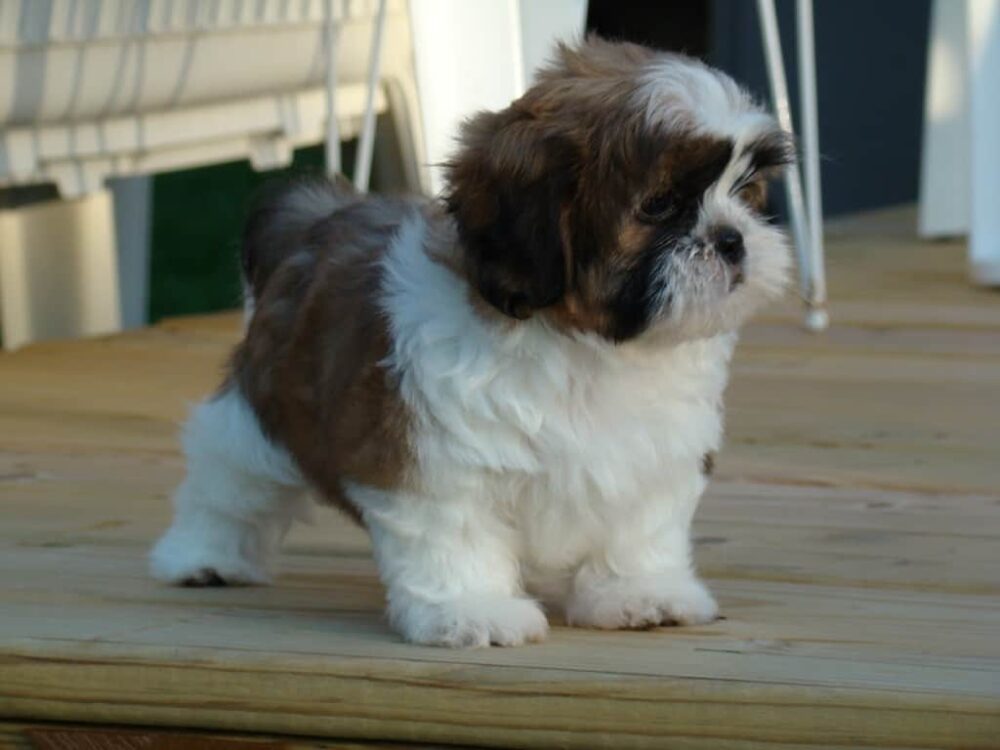
The insulting-sounding name actually means “lion” or “tiny lion,” which is inaccurate for a whole host of reasons. First off, aggression is rarely built into these mellow little buggers, and they’re almost too patient with small children. They can fit with almost anyone or anything, and seem perpetually contented, so long as they have some company. These sweet little dogs are the right fit for anyone in search of a loyal lapdog.
8. Bichon Frisé
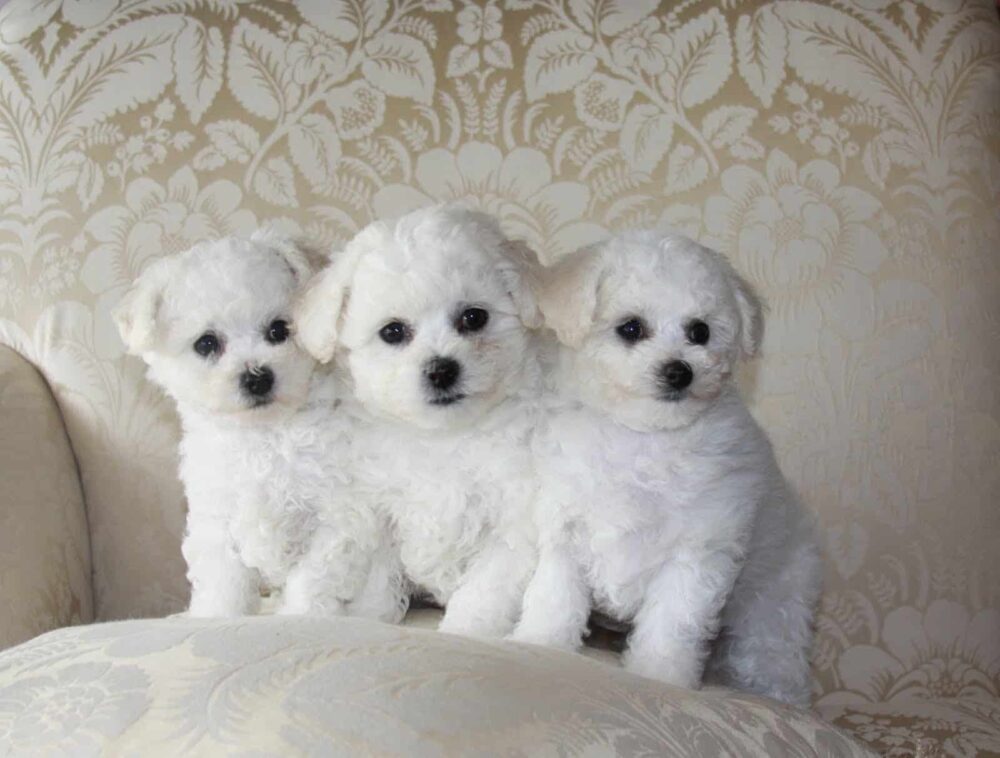
Bright and easy to train, with modest exercise needs, the Bichon Frisé is about as cheery a pal as ever walked on four legs. Perpetually sunny, these small fluffy dogs can be barkers if not properly trained, but are otherwise patient with humans and animals alike. They’re also relatively independent, which means mild solitude won’t hurt them too much.
9. Beagle
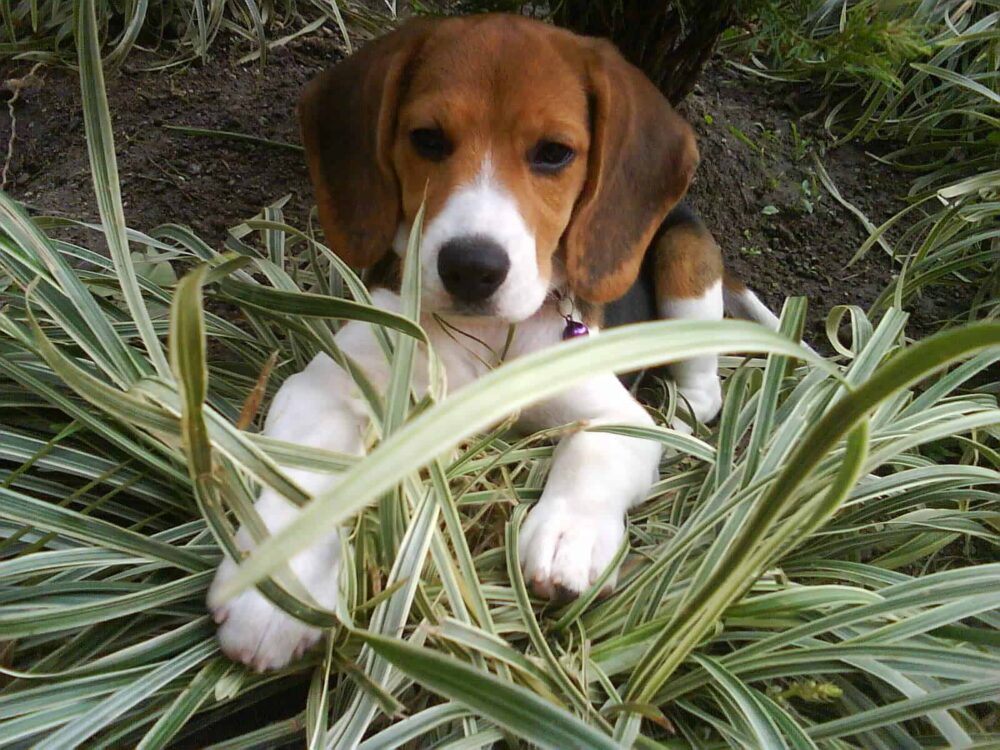
Originally bred for hunting, the beagle has turned out to be an excellent pet, even if you never intend on tromping through the woods in hot pursuit of small game. A romper that needs a lot of space to stretch, or a lot of time at the dog park, they’re clowns from the word go. Quick to pick up on training, thanks to their hunting roots, and fairly quiet, they’re loyal to fault.
10. Havanese

Called the ‘velcro’ dog due to both its fluffy coat and tendency to stick right by your side, a Havanese requires extensive attention, but little in the way of exercise. This is on of the best small dog breeds for homebodies and those with limited mobility. Leaving them alone is destructive to the point it impinges on their life expectancy, but they are otherwise sweet, quiet, and excellent pug replacements.
11. Jack Russell Terrier
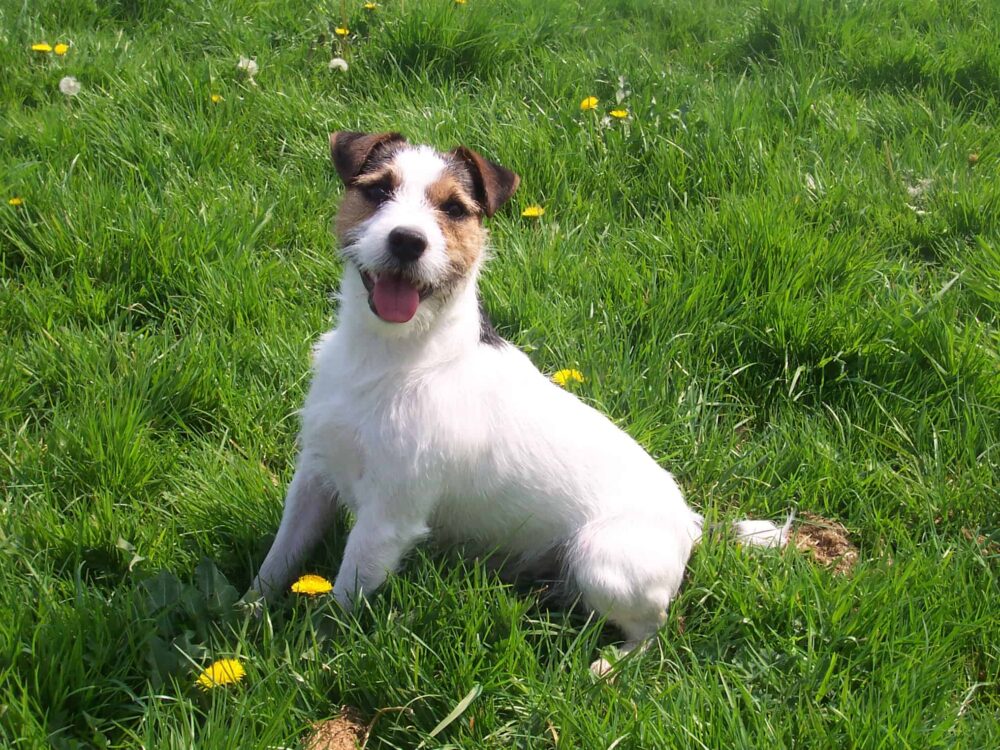
Jacks are a tough nut to crack. They’re perhaps the most independent of any dog, large or small, and will spend most of their time guarding your home while ignoring you entirely. Smarter than most humans, small terrier breeds can be trained easily, but will always be wound a little tightly. This makes them terrible, dreadful, wretched pets for an apartment, but tremendous if they have room to run. Hip and knee issues do abound, but those problems often slow them down a little, which isn’t actually terrible given their propensity to run off to a new family, sometimes.
12. Boston Terrier
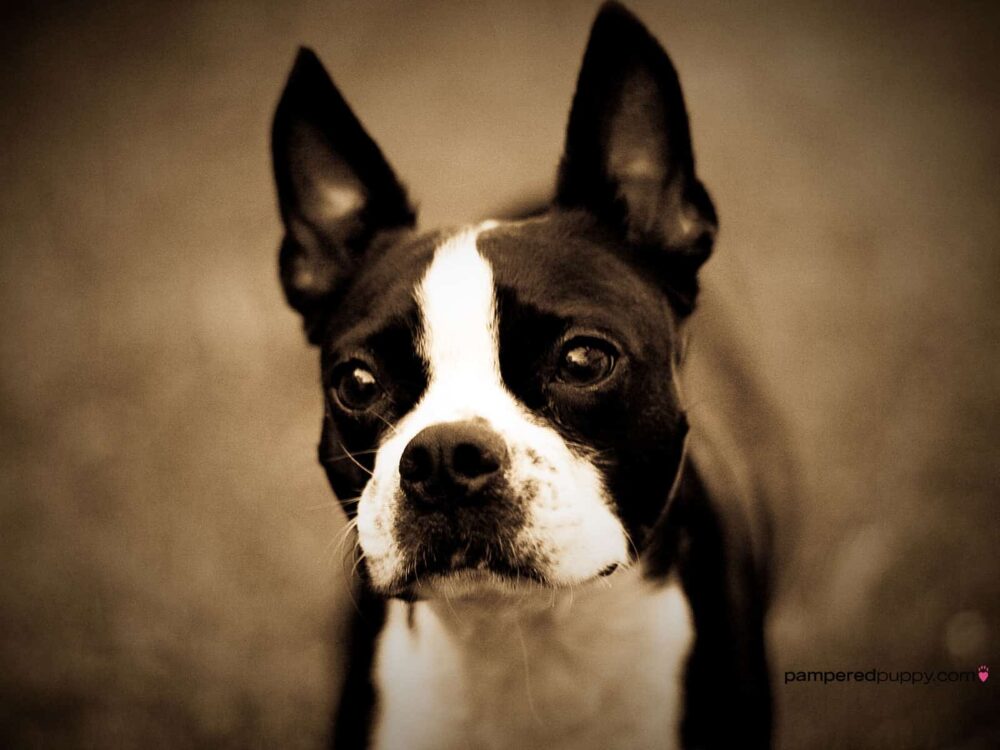
While chihuahuas like to jack their jaw for noise, Boston Terriers prefer to do it to chew. If they aren’t provided with lots of toys, blocks of wood, rawhide munchies, and other things to occupy their gnawing, they’ll wreck shoes and furniture. A few squeaky things to bite often cures this, leaving you with kindly, kid-friendly and above all cute little dogs.
13. Dachshund
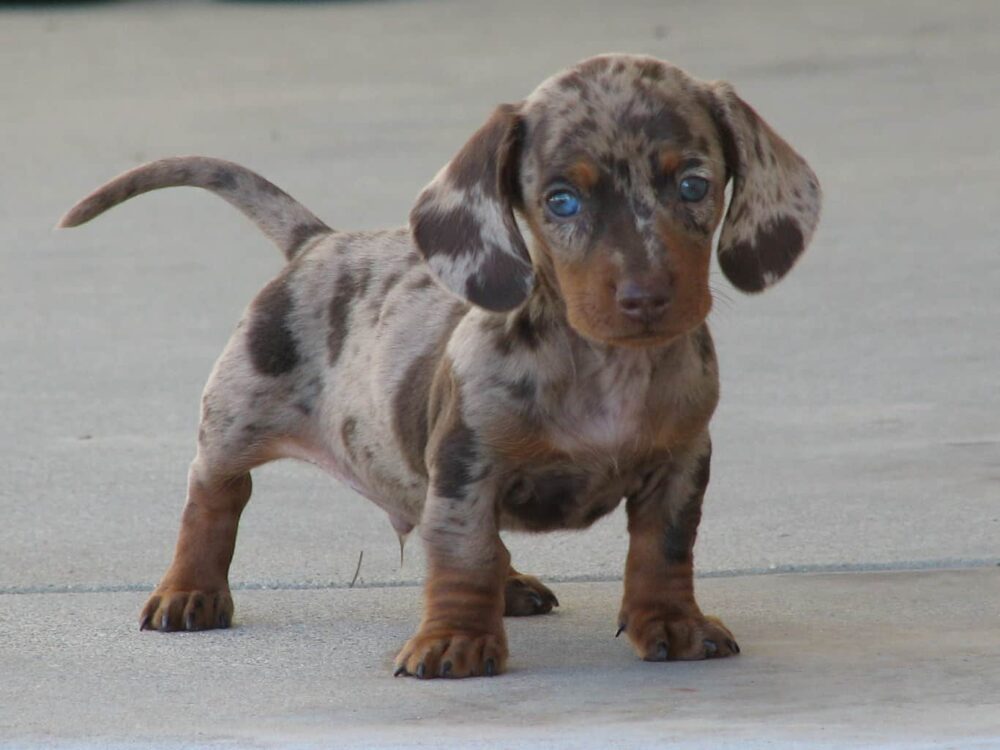
The wiener dog is a smart, clever, independent pet that operates well alone, or with other canines. It’s deadly loyal to its family, which makes it a good watchdog. The tendency to want to hunt and kill might be too much for those in apartments. But these famously short legged dogs offer a helpful aid to anyone who lives in rural regions where infestation of rats and mice are problematic.
Small Dogs – FAQs
Do Small Dog Breeds Still Need Exercise?
It might be tempting to work your tiny pooch up into a fit of the zoomies, laugh your butt off as it runs around the living room, and call it a day once it’s tired out. But beware: Small dogs have a tendency to become obese for this very reason.
Moreover, small dogs get bored as easily as larger breeds, and regular walks allow them to blow off steam and ward off destructive behavior. Keep walks shorter and more frequent–as their short little legs won’t carry them as far without getting tuckered out.
Is it Bad to Carry Tiny Dogs?
It may surprise you to learn that carrying small dog breeds can reinforce some negative behavior. The crux of the matter is that they will feel safe in your arms–which is a double edged sword for behavior.
Why? You become their safe space; their home away from home. And that means, they’re likely to defend it against anyone who would dare enter their realm. That could mean obnoxious barking in the best case scenario, or lawsuit-inducing snaps and bites in the worst case.
Moreover, making it a habit to scoop your pooch may lead to reticence to actually walk themselves. That could contribute to obesity and other health problems.
That doesn’t mean you should never hold your cute little puppies and dogs. Just be judicious about how and how often you do it.
What Is the Best Way to Pick Up Small Sized Dogs?
This may or may not be a question you’ve actually ever asked, but it’s an important one nonetheless. First off, imagine a 40-foot giant picking you up, willy nilly. Unless they’re very careful, you’re likely to experience some major whiplash–or at least back problems in the long-run.
Thus, it behooves you to consider the spinal health of small to medium sized dogs when you pick them up. Resist the urge to scoop your arm under their chest or between the legs, as this distributes the dog’s weight poorly and can lead to dislocated ribs and disc disease. Instead, use both hands, starting with the front legs then either the stomach or hindquarters. While lifting, endeavor to keep the spine as straight and natural as possible.
Once in hand, stand up slowly–never jerk upwards–and hold your dog securely against your body, maintaining a natural posture.
Do Small Dog Breeds Live Longer?
Typically, yes–body size is a fairly reliable predictor of a breed’s lifespan. Correspondingly, small dogs age slower than big dogs–and are thus more likely to maintain some spunk well into middle and even old age.
The reasons why are complex, but it might have to do with growth rates. Most puppies start off pretty small, but a chihuahua puppy doesn’t have as much growing to do as a great dane puppy. Thus, cells have more opportunity to mutate and cause cancers.
What’s more, large dog breeds tend to see higher rates of inbreeding, which drastically increases the likelihood of developing age-related issues even in otherwise healthy specimens.
One other thing to consider is how statistics are tallied. Large dogs are far more likely to be working breeds, which come with a host of occupational hazards which might depress the overall age of the breed on paper.
Why Do Small Dogs Shake?
The reasons are numerous, but it’s an unmistakeable hallmark of small dog breeds that they tend to shake. The frequency and intensity will vary from breed to breed and on an individual basis.
- They’re cold. Just like humans, dogs shiver when their body temperatures drop. The muscles trembling creates kinetic energy, which temporarily warms the dog back up. If you see them shaking often on walks, consider investing in a doggy jacket or a nice blanket to offer some relief from chill.
- They’re nervous. Once again, small dog breeds are rather human-like in that nerves and anxiety can cause them to shake. Compared to big dogs, who are inherently more capable of defending themselves, increased alertness and even anxiety has likely proven an evolutionary benefit to small dogs’s survival to some extent.
- They’re begging for attention. While you shouldn’t assume your shivering dog is just trying to manipulate you–they might actually be. If you rush in to scoop them up every time they shake and shiver, they may associate that behavior with a sure-fire way to get your attention.
- They’re happy. Have you ever been so excited, you can’t sit still? Dogs are emotionally complex creatures, and experience anticipation and excitement just like you do. Sometimes, they just can’t contain themselves! Beware, they might shake so intensely, it leads to pee-pee puddles on the floor.
Be aware, though, that not all shaking is created equal. As your small dog ages, be on the lookout for trembling or tremors that are out of the ordinary–it could be a sign a vet visit is needed for an underlying condition.
What You Need to Know About Small Dogs
There are a few more tips we’d like to share in order to ensure a long, happy companionship with your small dog:
- Beware birds of prey – Seriously, large birds like hawks and eagles can swoop down and carry off your 6-lb. yorkie in an instant. It’s not nearly as uncommon as you might hope, so don’t leave tiny dog breeds out in the back yard unattended–or let them stray too far from you for that matter. And it’s not just a country vs. city thing; falcons love to hunt from their roosts amidst tall urban rooftops.
- Don’t overfeed – Left to their own devices, many dogs are pigs who wont hesitate to gorge themselves on food. Thus, it is crucial that you ensure you are not overfeeding your small dog! Read the packaging carefully, and when in doubt–ask your vet. Not only will a healthy diet stave-off obesity, but small portions will help avoid VERY deadly bloat.
- Never reinforce aggressive behavior – It’s terrifying when a 100-lb. Rottweiler growls, snarls, and snaps; but somehow, we tend to let our small dogs get away with the same behavior because it’s seen as humorous or even cute. Don’t. Remember, small dogs have a sense of their size–at least on some evolutionary level–and their natural anxiety about the general size difference between them and the rest of the world can feed into poor training habits. The result can be a very nasty little thing, indeed. Obedience training and mental engagement is just as important for the little guys as the big ones.
Best Small Dog Breeds: Parting Words
Well, if you weren’t initiated into the wild, wonderful world of small dogs, then today’s article should serve as a good crash course. We’ve covered 13 of the best small dog breeds to own as pets according to their temperament, adorability, and health issues (or lack thereof). We also shared some useful tips for miniature dog owners or owners-to-be that we highly recommend you keep in mind for the wellbeing of your pet.
If we neglected to mention your favorite small dog breeds, please let us know why you think they’re awesome! And if you have any cute stories or anecdotes about your diminutive pals, we’re here for them. So in any case, drop us a comment below–we’re always down to talk dog.




